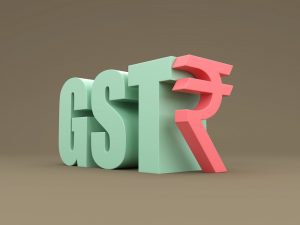 As Finance Minister Nirmala Sitharaman prepares to present the first Budget in the third term of the BJP-led NDA government on July 23, policymakers are pushing for a revision in indirect tax rates to give a fillip to flagging consumption.
As Finance Minister Nirmala Sitharaman prepares to present the first Budget in the third term of the BJP-led NDA government on July 23, policymakers are pushing for a revision in indirect tax rates to give a fillip to flagging consumption.
Sources in the government said there is broad consensus over the need for rate rationalisation in a phased manner under the Goods and Services Tax (GST) regime.
The Indian Express had on June 17 reported that rationalising the income tax structure, especially at lower income levels, was also an option under consideration.
Policymakers acknowledge that while cutting income tax rates was easier and can happen in the Budget itself, the move to rationalise GST rates will take some time since this would be discussed only at the time of next GST Council meeting.
For raising the income slabs or In the case of I-T rate cuts, the Centre does not have to consult the states; the discussions have essentially been around the trade off between some revenue loss, and the multiplier effect higher consumption can bring to the economy.
GST rate cuts, however, require onboarding of states to evolve a consensus on an issue that may dent revenues of both states and the Centre. The committee on rate rationalisation will have to thrash out the details for rejigging rates even as it may first enlist items for rate rationalisation already discussed in its previous meetings.
“Consumption trends are being watched, and that holds the key (to a revival of private investment sentiment). Indirect tax rates are seen affecting the majority while direct tax rates are restricted to the higher income segments in the country. The committee on GST rate rationalisation has already discussed several proposals including merger of slabs, moving items from one slab to another, and they may be asked to present those recommendations immediately in the meeting after the Budget session,” a person in the know said.
The Budget session will start from July 22 and conclude on August 12, Parliamentary Affairs Minister Kiren Rijiju said Saturday. The Budget will be presented by Sitharaman on July 23.
In her address to a joint sitting of Parliament, the President had said major social and economic decisions will be a highlight of the budget. An interim budget was presented in February due to the Lok Sabha polls.
The proposal on I-T rate rationalisation is learnt to have faced some opposition within the policy circle, with the reading being that revenues have stabilised at a certain level now. While there is an emerging consensus on the need to boost consumption as a clear imperative, discussions are still on about the ways to do it.
A GST rate rationalisation exercise, especially any meaningful one, would need the concurrence of states and some sort of a guidance on how to plug any potential revenue loss, an official said. An income tax rate cut could still be a strong possibility, especially at the lower end of the bracket, but the revenue implications of any such cut are posing concerns within sections of North Block.
With a slower rate of revenue growth expected in the coming months, partly due to the waning off of the bump up from base effect along with the impact of tepid consumption growth, some of the policymakers are not much in favour of a big tweak in direct tax rates.
A boost to consumption, whether through a cut in direct tax or indirect tax, is being seen as crucial for reviving demand, which in turn is central to restarting the investment cycle, especially rekindling private capital expenditure in consumer-focused sectors.
In the most recent GDP data release for the January-March quarter on May 31, Private Final Consumption Expenditure (PFCE), an indicator of consumption demand, dropped as a share of GDP to 52.9 per cent — the lowest level in the 2011-12 base year series. For the full financial year 2023-24, consumption expenditure grew by 4 per cent, the slowest growth rate in the last two decades excluding the pandemic year.
Rate rationalisation under the GST regime has been a long pending proposal. The Group of Ministers (GoM) on GST rate rationalisation had submitted an interim report in June 2022. The Council had then undertaken a series of rate changes, which came into effect from July 2022, as part of correction of inverted duty structure, withdrawal of certain exemptions in what was seen as a precursor to an overall tweaking of tax slabs and rate rationalisation in future. The ministerial panel was reconstituted in February this year. Bihar’s Deputy chief minister Samrat Chaudhary was named the convenor of the GoM, which has six other ministers from states of Uttar Pradesh, Goa, Rajasthan, West Bengal, Karnataka and Kerala.
Source: The Indian Express


